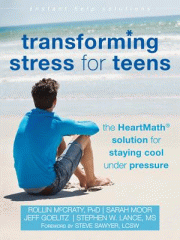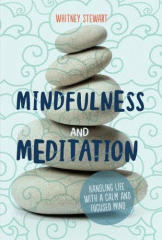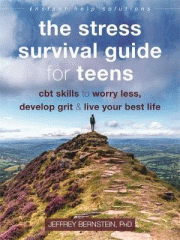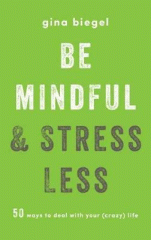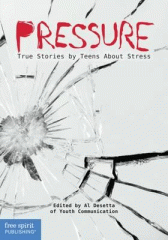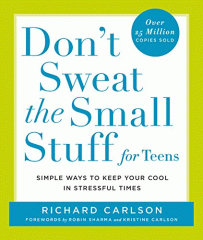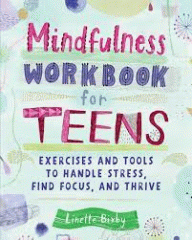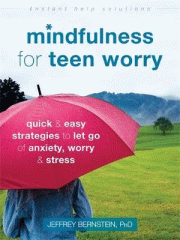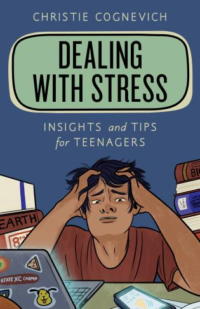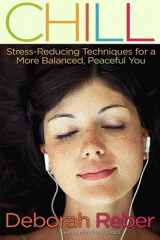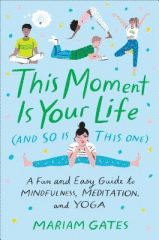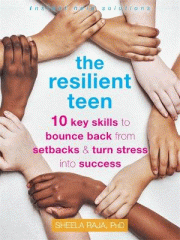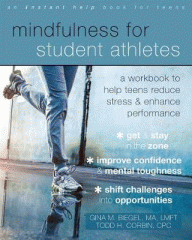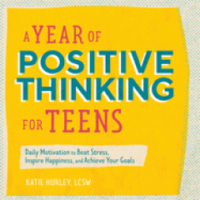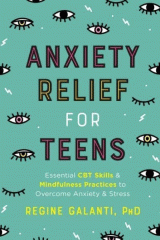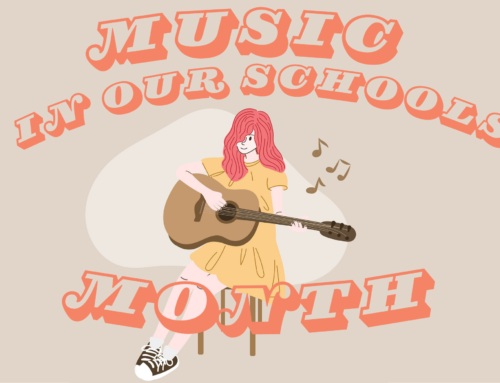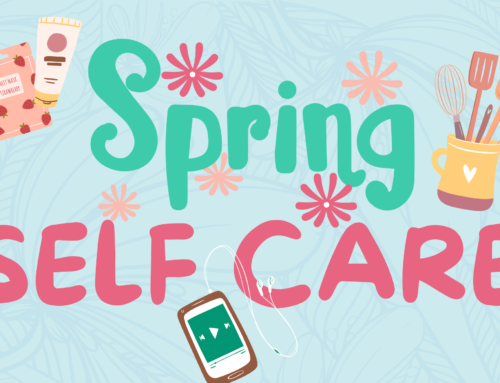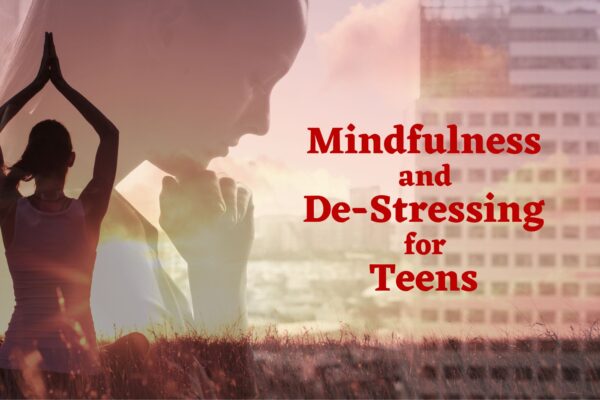
April is Stress Awareness Month. Check out these 10 tips for stress reduction and these great books all about stress management.
Tips are from
Transforming Stress for Teens: The Heartmath Solution for Staying Cool Under Pressure by Rollin McCraty
This unique and interactive guide offers practical skills to help you beat stress by helping you get a handle on your emotions. With simple exercises such as the Heart-Focused Breathing Technique–you’ll feel calmer, be more confident, think more clearly, bounce back faster from challenging situations, and enjoy life with a new understanding of what’s really important to you.
Mindfulness and Meditation: Handling Life with a Calm and Focused Mind by Whitney Stewart
From hormones to homework, parents to peers, health issues to bad habits, life can be a pressure cooker leading to anxiety and even thoughts of suicide. Author Whitney Stewart introduces readers to the practice of mindfulness.
The Stress Survival Guide for Teens: CBT Skills to Worry Less, Develop Grit, & Live Your Best Life by Jeffrey Bernstein
Provides strategies and activities for teenagers to manage their stress, describing such tasks as identifying stressor events, concentrating on the present, letting go of negative self-judgements, self-care, and focusing on the positive.
Be Mindful and Stress Less: 50 Ways to Deal with Your (Crazy) Life by Gina M. Biegel
This accessible, user-friendly toolbox for teens introduces them to mindfulness practice and shows them how it can ease their fears and anxieties, reduce their impulsivity, help them develop a more measured response to the stressors around them, and build strong relationships
Pressure: True Stories by Teens About Stress by Al Desetta
Teens share stories of feeling pressure at school, at home, and in relationships, as well as their stress-relief techniques, including exercise, music, writing, and more.
Don’t Sweat the Small Stuff for Teens: Simple Ways to Keep Your Cool in Stressful Times by Richard Carlson
Stress management for teenagers.
Mindfulness Workbook for Teens: Exercises and Tools to Handle Stress, Find Focus, and Thrive by Linette Bixby
The Mindfulness Workbook for Teens is full of exercises, strategies, and meditations to help you practice mindfulness so you can cultivate peace and achieve balance in your life no matter what’s going on. Learn practical methods for mindful test-taking, moving through strong emotions, navigating relationships with parents and peers, and much more.
Mindfulness for Teen Worry: Quick and Easy Strategies to Let Go of Anxiety, Worry, and Stress by Jeffrey Bernstein
Is your worrying keeping you from reaching your goals? In Mindfulness for Teen Worry, a clinical psychologist offers quick, easy-to-learn mindfulness skills teens can use anytime, anywhere to stop worries from growing and taking over.
Dealing with Stress: Insights and Tips for Teenagers by Christie Cognevich
Teens today are dealing with stress at an unprecedented level, but they are not alone. This valuable resource offers practical coping strategies, useful resources, and insight from fellow teenagers to help young adults recognize and manage stress factors in their lives
Chill: Stress-Reducing Techniques for a More Balanced, Peaceful You by Deborah Reber
Gives teens the insight and tools they need to manage the pressures of everyday life by offering expert advice and practical stress-reducing techniques.
This Moment is Your Life (and So is This One): A Fun and Easy Guide to Mindfulness, Meditation, and Yoga by Mariam Gates
This lively, hands-on guide to meditation, mindfulness, and yoga is a perfect introduction for tweens and teens. Don’t just do something, be here.The key to happiness is being able to find comfort in this moment, here and now.
The Resilient Teen: 10 Key Skills to Bounce Back from Setbacks & Turn Stress into Success by Sheela Raja
More than ever, teens need tools to manage stress and increase resilience. Based on the latest research in psychology and neuroscience, The Resilient Teen offers ten key skills to help readers bounce back from difficult situations, deal with difficult emotions, and cultivate a sense of joy, even in the face of modern-day stressors.
Mindfulness for Student Athletes: A Workbook to Help Teens Reduce Stress & Enhance Performance by Gina M. Biegel
Mindfulness allows you to stay present, focus, and be calm with your thoughts and emotions, no matter how stressful life gets. In Mindfulness for Student Athletes, you’ll find practical and tactical ways to cope with stress and anxiety in the moment, prevent stress in the future, and experience more satisfaction and enjoyment while playing sports. You’ll also find proven-effective tools to naturally enhance your performance.
A Year of Positive Thinking for Teens: Daily Motivation to Beat Stress, Inspire Happiness, and Achieve Your Goals by Katie Hurley
Being a teen can be an emotional roller coaster. When you’re overwhelmed by unrealistic expectations from your friends, family, social media feed, teachers, and even yourself, it’s normal to have thoughts and feelings like This is too hard or I’ll never measure up. With A Year of Positive Thinking for Teens, you’ll discover how to overcome these anxious thought patterns, and build a happier, more positive mindset to achieve your goals. Let go of stress with relatable prompts and reflections–all grounded in positive thinking and positive psychology strategies.
Anxiety Relief for Teens: Essential CBT Skills and Mindfulness Practices to Overcome Anxiety and Stress by Regine Galanti
With proven CBT-based skills and mindfulness techniques, this book can be your guide out of the spiraling stress of anxiety and get you back on track to living a happy and healthy life. Getting good grades, keeping up with social media, maintaining friendships… you have a lot on your plate and it’s more difficult when you add anxiety to the mix. You may even be avoiding situations, events, or people that could trigger your anxiety. So, how do you stop yourself from missing out on life’ With Anxiety Relief for Teens, Dr. Regine Galanti teaches you how CBT-based skills and mindfulness techniques can help you manage your anxiety and reverse negative patterns. Through simple and effective exercises that help you change your thoughts, behaviors, and physical reactions, this helpful guide gives you the tools you need to navigate all of life’s challenges. Anxiety Relief for Teens features: Quizzes and self-assessments to better understand your anxiety and emotions and discover their respective triggers. 30+ CBT-based tools to manage your anxiety along with practical strategies for dealing with challenging emotions such as anger and sadness. 30+ mindfulness practices to cope with your anxiety in the present moment through visualizations, breathing, meditation, and other exercises.

